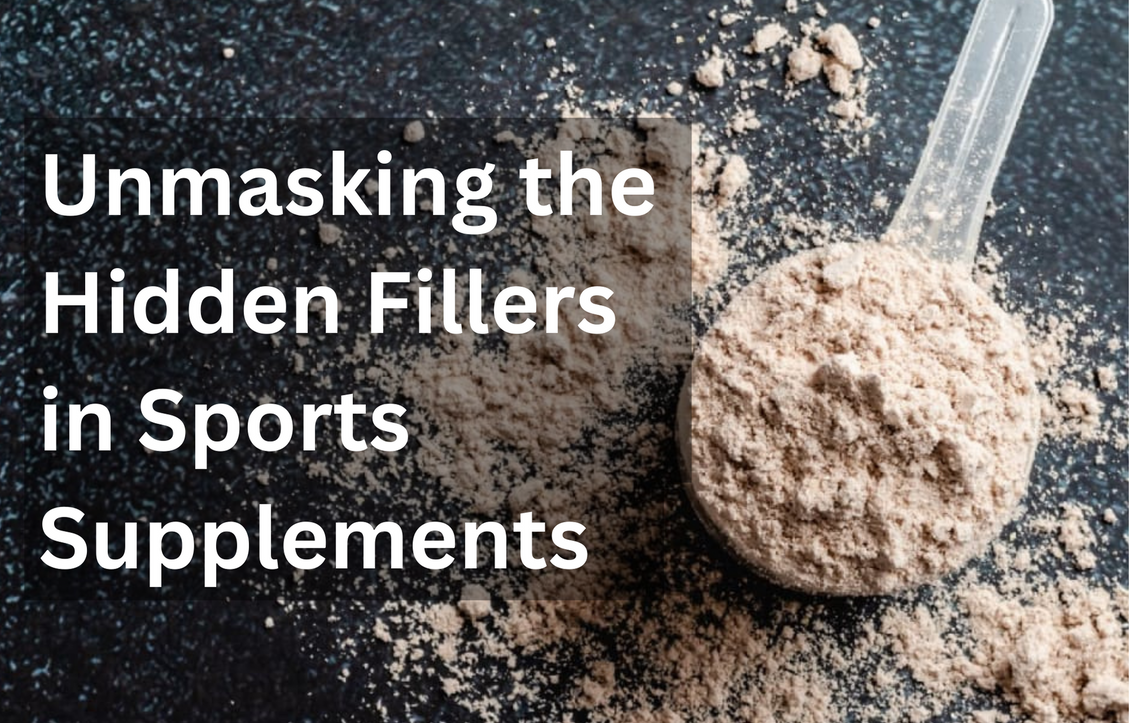Posted by Kaha Nutrition on 22nd Apr 2023
Unmasking the Hidden Fillers in Sports Supplements: The Inside Scoop on Inulin, Gums, Lecithin, and more...
Sports supplements, especially whey protein, have become an essential part of fitness enthusiasts' and athletes' routines. These supplements promise to enhance performance, support muscle growth, and aid in recovery. However, as we delve deeper into the world of sports supplements, it's crucial to be aware of some hidden fillers lurking within these products. In this article, we will uncover the truth about fillers like inulin, gums, and lecithin found in some of your favourite sports supplements.
Hidden Fillers in Sports Supplements
1. Inulin
Inulin is a type of soluble fiber found naturally in plants like chicory root, onions, and garlic. Manufacturers often add inulin to sports supplements as a filler or thickener. It is also used to add texture and improve the mouthfeel of the product. Although inulin has some health benefits, such as promoting gut health and supporting weight management, it can cause digestive discomfort and gas in some individuals, particularly when consumed in large amounts.
2. Gums
Gums, such as xanthan gum, guar gum, and locust bean gum, are common fillers in sports supplements. Derived from various plant sources, gums are used as thickeners, stabilizers, and emulsifiers to enhance the texture and shelf life of products. While these additives are generally recognized as safe, they can cause gastrointestinal issues like bloating, gas, and diarrhea in some people, especially when consumed in large quantities.
3. Lecithin
Lecithin is a fatty substance that occurs naturally in plant and animal tissues, such as soybeans and egg yolks. It's frequently added to sports supplements as an emulsifier to improve the mixability and prevent ingredients from separating. While lecithin has some health benefits, such as supporting brain function and liver health, it can be an allergen for those with soy allergies. Additionally, the extraction process for soy lecithin often involves the use of chemicals, raising concerns about potential contaminants.
Other Common Fillers
- Maltodextrin: A highly processed carbohydrate derived from corn, rice, or potato starch, maltodextrin is used as a thickener, filler, or sweetener in sports supplements. It has a high glycemic index, which can lead to blood sugar spikes and subsequent crashes, potentially affecting athletic performance.
- Artificial Sweeteners: To make sports supplements more palatable, manufacturers may use artificial sweeteners like sucralose, aspartame, or acesulfame potassium. Although they are considered safe by regulatory authorities, some people may experience side effects like headaches, dizziness, or digestive discomfort.
- Titanium Dioxide: This inorganic compound is sometimes used as a colorant and opacifier in sports supplements. Recent studies have raised concerns about its safety, with some evidence suggesting that it could have negative effects on the immune system and gut health.
Conclusion
As consumers, it's essential to be vigilant when choosing sports supplements. Read labels carefully and opt for products with minimal fillers and additives. If you're unsure about a particular ingredient, consult a healthcare professional or sports nutritionist for guidance. By making informed choices, you can ensure that your sports supplements are truly beneficial for your fitness goals and overall health.

